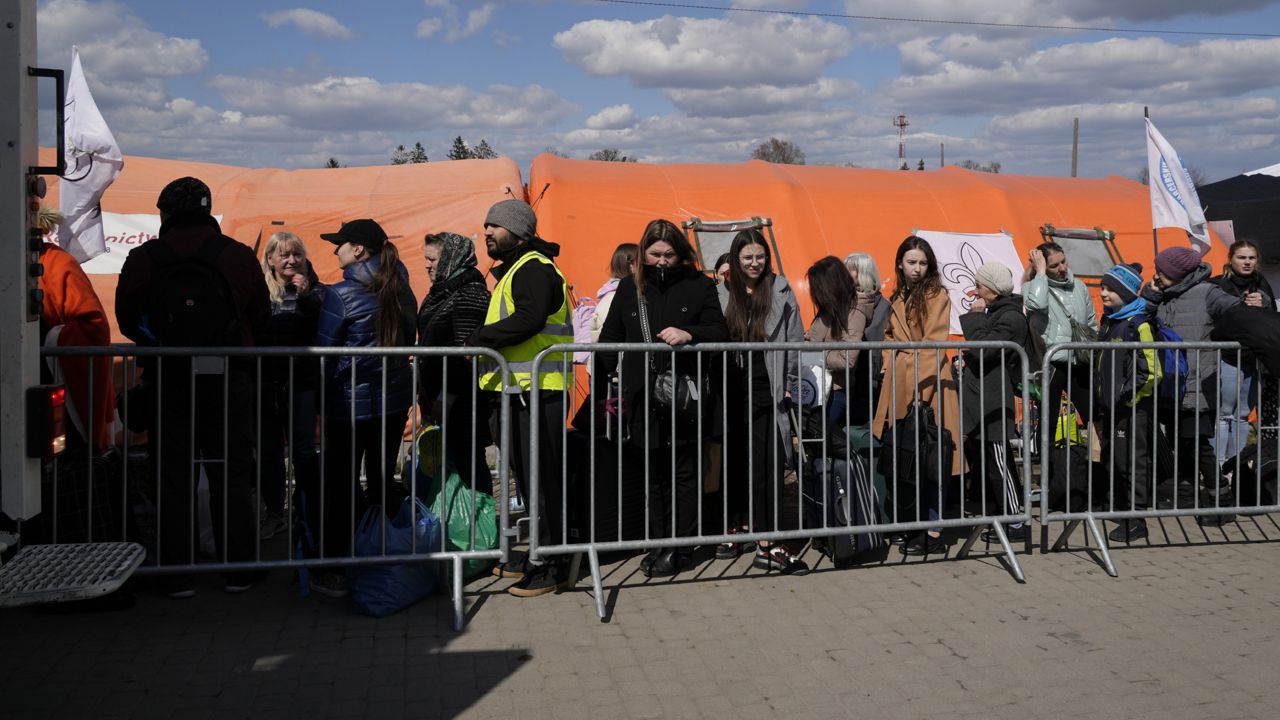When Russia first began its invasion of Ukraine in late February, experts from the United Nations predicted as many as 4 million individuals would flee the country as refugees.
That number was reached by the end of March – and as of Wednesday, the U.N. estimates more than 5 million individuals have fled the violence in Ukraine, a 25% increase from the predicted numbers.
The millions of people who left Ukraine because of the war “have left behind their homes and families,” U.N. high commissioner for refugees Filippo Grandi wrote on Twitter Wednesday. “Many would do anything, and some even risk going back, to see their loved ones. But every new attack shatters their hopes. Only an end to the war can pave the way for rebuilding their lives.”
Ukraine had a pre-war population of 44 million, and UNHCR says the conflict has displaced more than 7 million people within Ukraine along with the 5.03 million who had left as of Wednesday. According to the agency, 13 million people are believed to be trapped in the war-affected areas of Ukraine.
"While the sheer scale and speed of displacement is immense, we must not lose sight of what these figures mean,” U.N. deputy high commissioner for refugees Kelly T. Clements said to members of the U.N. Security Council on Tuesday. “No pile of blankets, no sum of cash, no amount of medicine, is going to halt the death and destruction. [...] While we will continue our job to deliver aid, we need this Council to do its job too.”
Clements was speaking from Hungary, which has welcomed nearly half a million Ukrainian refugees in the nearly two months of war. Poland has the highest number of Ukrainian refugees at 2.8 million, followed by Romania, Hungary, Moldova and Slovakia.
The European nations hosting refugees say they need international help to manage the challenge, especially now as Russia has intensified attacks in Ukraine’s eastern Donbas region.
“If we have a second wave of refugees, then a real problem will come because we are at capacity. We cannot accept more,” Warsaw Mayor Rafal Trzaskowski told The Associated Press.
Women and children – both those who have fled Ukraine and those who cannot yet escape – face heightened risks of trafficking amid conflicts, according to Antonio Vitorino, director-general of the International Organization for Migration.
As the amount of refugees has continued to rise, so too have reports of civilian casualties within Ukraine – and Vitorino warned that as Russia has launched a renewed offensive in eastern Ukraine, those numbers are only expected to rise.
“As more people are likely to be displaced, it is crucial to plan ahead and ensure that all those fleeing the war have access to adequate support and services,” he said Tuesday.
As of Wednesday, the United Nations’ civilian casualty estimate for the first time topped 5,000, and the agency noted – as it has since the start of the war – that actual tolls are likely much higher given the nature of the conflict.
The 5,121 confirmed civilian casualties include a total of 2,224 killed, including 631 men, 383 women, and 173 children. Another 2,897 civilians have been injured, the agency said, including including 335 men, 271 women and 280 children.
“Most of the civilian casualties recorded were caused by the use of explosive weapons with a wide impact area, including shelling from heavy artillery and multiple launch rocket systems, and missile and air strikes,” the U.N. wrote in part, adding the ongoing fighting in regions like Kharkiv, Donetsk, Luhansk and Sumy make independent reports of casualties difficult to verify.
U.N. officials have also warned of a rise in “enforced disappearances of Ukrainian nationals” since Russia first invaded the country, and is offering a series of forms for individuals to fill out information about potentially missing loved ones so the Working Group on Enforced or Involuntary Disappearances can assist “families in determining the fate and whereabouts of their family members.”
The Associated Press contributed to this report.



